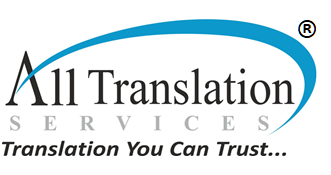How to Maintain Quality in High-Volume Translation Projects
Monitor Performance & Continuously Improve
Businesses and organizations frequently require large-scale translation projects. Whether it’s localizing a website, translating product manuals, or handling legal documents across multiple languages, maintaining high quality while managing a large volume of content can be challenging. Inaccurate or inconsistent translations can lead to miscommunication, reputational damage, and legal issues.
We specialize in handling high-volume translation projects while ensuring top-notch quality and consistency. In this blog, we’ll explore the key strategies to maintain quality when working on large-scale translations.
Establish a Well-Defined Translation Process
Having a structured process is crucial to managing large translation projects efficiently. The workflow should include:
- Initial Planning & Scope Definition – Understand the client’s requirements, target audience, and specific industry terminology.
- Assigning the Right Team – Allocate experienced translators, proofreaders, and project managers for quality assurance.
- Translation & Review Workflow – Implement a multi-step review process, including editing and proofreading.
- Final Quality Check & Delivery – Ensure compliance with the client’s expectations before delivering the final product.
A well-organized workflow minimizes errors, improves efficiency, and ensures the highest level of quality.
Use Translation Memory (TM) & Glossaries
A Translation Memory (TM) is a database that stores previously translated phrases and sentences, helping maintain consistency across multiple documents. This is especially useful for:
- Repeating technical terms in legal, medical, and financial documents.
- Keeping brand tone and voice consistent in marketing content.
- Reducing translation time and costs by reusing content.
Similarly, a terminology glossary ensures uniformity by defining key terms in different languages before the translation process begins.
We use advanced TM tools and maintain custom glossaries for every project to guarantee accuracy and consistency.
Implement a Multi-Layer Quality Assurance Process
For large translation projects, a multi-layered QA process is essential. This includes:
- First Draft Translation – Completed by professional human translators.
- Editing Phase – Reviewed for grammar, syntax, and accuracy.
- Proofreading & Quality Check – A final review ensures no errors remain.
- Automated QA Tools – Using tools to check terminology consistency, missing translations, or formatting errors.
Quality assurance is not just about error detection—it’s about ensuring clarity, cultural appropriateness, and linguistic fluency.
Utilize Technology Without Sacrificing Human Expertise
Machine Translation (MT) and AI-driven tools can be useful in handling large projects, but they should never replace human expertise. The best approach is a hybrid model, where:
AI tools handle repetitive or large volumes of text.
Human translators refine and edit to maintain context and cultural relevance.
Our team leverages AI-assisted translation tools while ensuring every final document is reviewed and refined by skilled linguists.
Assign Specialized Translators for Industry-Specific Content
Different industries require different translation expertise. A legal document translation demands precise terminology, while marketing content requires creativity and cultural adaptation. That’s why assigning subject-matter experts is key to maintaining quality.
For example:
- Medical Translations – Require knowledge of medical terminology and compliance with regulatory guidelines.
- Technical Translations – Need industry-specific terminology and accurate formatting.
- Legal Translations – Must be legally precise and error-free to avoid legal disputes.
We assign specialized translators for each project, ensuring accurate and high-quality translations tailored to specific industries.
Maintain Effective Communication with Clients
Clear communication with clients is vital for a successful translation project. Before starting, we:
- Discuss preferred terminology, tone, and target audience.
- Set expectations on deadlines and deliverables.
- Provide regular progress updates and incorporate client feedback.
This collaboration helps avoid misunderstandings and ensures that the final translation meets the client’s needs.
Monitor Performance & Continuously Improve
The best way to maintain high quality is by tracking and improving performance over time. This includes:
- Conducting post-project reviews – Analyzing what worked well and what can be improved.
- Gathering client feedback – Understanding client satisfaction and making necessary adjustments.
- Training translators continuously – Keeping up with industry trends and new translation tools.
We prioritize continuous learning and quality enhancement to deliver the best translations every time.
Final Thoughts
Handling high-volume translation projects requires a well-structured workflow, the right technology, expert linguists, and a strong quality assurance process. By implementing these best practices, translation companies can maintain accuracy, consistency, and cultural relevance—even for large-scale projects.
Looking for high-quality translations for your business? Our Delhi translation company specialize in delivering accurate and culturally relevant translations at scale. Contact us today to get started on your next translation project!
